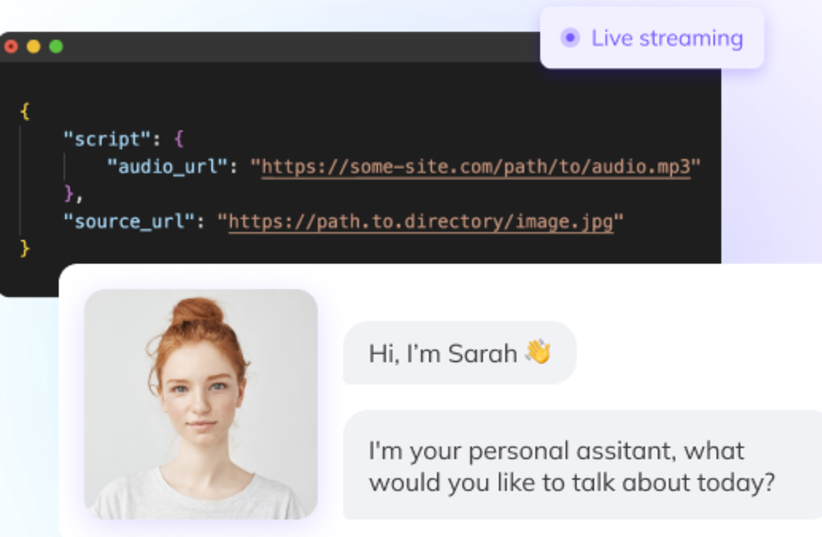Generative AI is one of the industry-defining technologies of the hi-tech world in 2023, and the recent popularity of platforms such as ChatGPT and DALL-E has led to a seemingly non-stop cavalcade of new AI innovations.
One of the latest comes by way of generative AI platform developer D-ID, which on Wednesday launched a chat platform that will enable face-to-face conversations with an “AI Digital Human,” made possible by the company’s proprietary text-to-video tech.
While the technology could be applied in several ways, from creative to educational, D-ID expects that it will be best utilized by enterprises and developers, allowing them to create photorealistic digital assistants who can interact with consumers in a more human, engaging, and effective way. These digital assistants can be used to improve customer support, sales, training, personal finance, and a host of other applications, and are likely to increase conversion and customer experience while lowering overall costs.
“Large language models like GPT-3 and LaMDA are changing the way we relate to and interact with technology, and we are not far off from all of us having our own personalized AI assistants and companions,” said Gil Perry, CEO and co-founder of D-ID. “We are making tech more human by giving it a face and making the interaction more natural. I am very proud of D-ID, which continues to be at the cutting edge of the emergent generative AI industry.”
Smart text chatbots have become an integral medium of interaction between consumers and brands, and D-ID hopes to alleviate some of the frustration associated with that interaction.
Ethics for synthetics
On Monday, D-ID also announced its involvement in Partnership on AI’s Responsible Practices for Synthetic Media, a framework for the ethical and responsible development, creation and sharing of synthetic media and generative AI. It is a set of guiding recommendations for those creating, sharing, and distributing synthetic media – also known as AI-generated media.
There is currently buzz among experts regarding the ethical development of AI. As generative AI becomes more prevalent among consumers and businesses alike with each passing day, the need for its increased transparency becomes more relevant.
“ChatGPT gives you information, but you don't actually know if it is true or false based purely on what it creates. You don't know where it comes from. You don't know whether it contains IP or not, or if it infringes copyright,” said Adv. Eldar Sivan, an attorney specializing in commercial law, intellectual property and hi-tech.

He noted that the best practice given AI’s current lack of transparency or explainability is to utilize generative AI as a jump starter for productivity, but that a hefty dose of human intervention, fact-checking and observation is very necessary.
“AI is great, I use AI personally,” Sivan said. “But it is not giving you the guarantees that you need as a business owner or as a company, from the legal point of view. “I think that you should use AI only to give you a first notion or an initial idea, but from there you have to be a professional and do your work as you’ve always done.”
